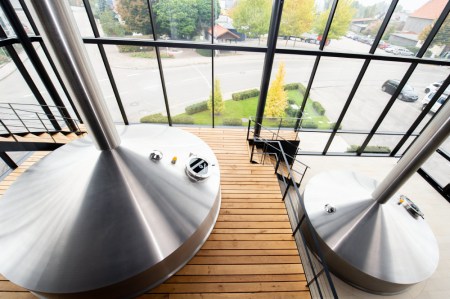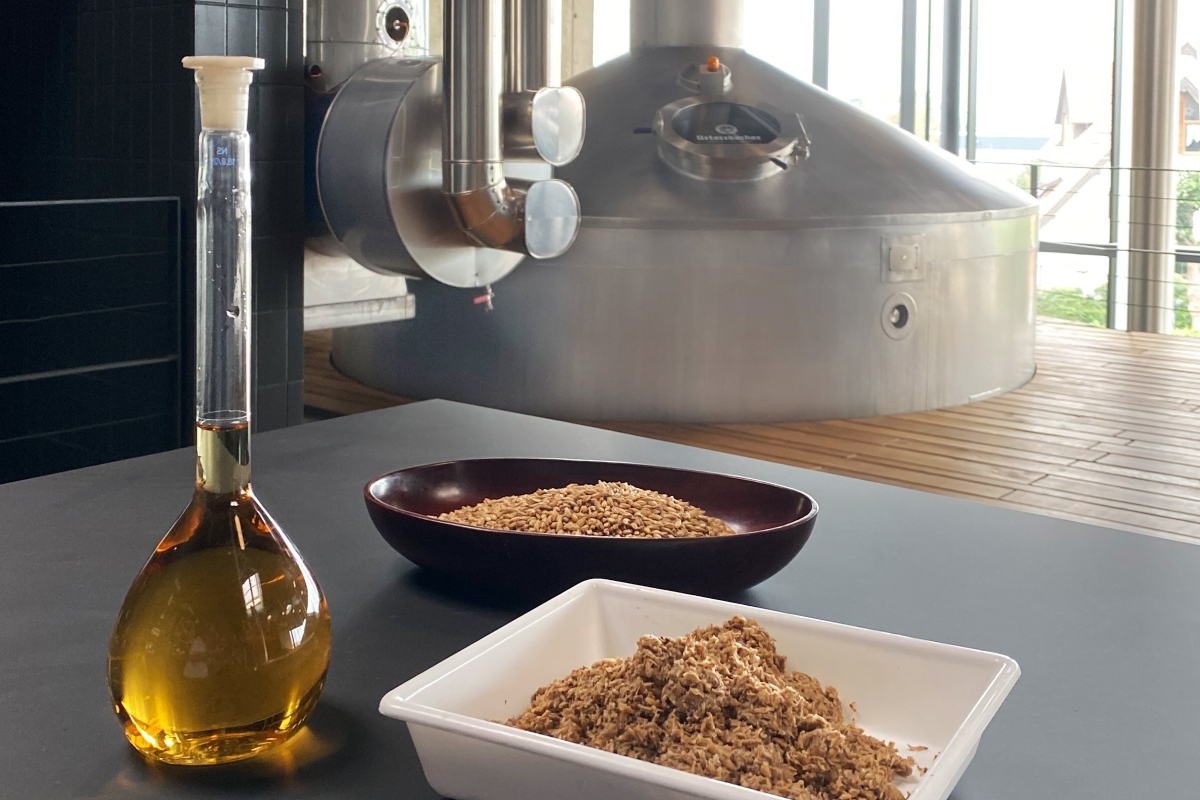Steinecker presented its Phoenix BMC development project for the first time in Mid-2022. A concept for upcycling brewing residuals in combination with energy recovery to realize a fully self-sufficient brewery. The pilot installation is running at Ustersbach Brewery, where the first module is now fully up and running since end of 2023 which allows the official release for industrial scale.
In this first module, spent grains, malt dust and yeast are processed to extract a liquid protein solution known as protein hydrolysate, which is a strongly requested basis for alternative food, cosmetic industry and agriculture.
The return on investment for this system is quite impressive. The first module of Phoenix BMC pays for itself in approx. three years’ time based on an annual output of 750,000 hl sales beer. That is in large part attributable to the excellent quality of the hydrolysate – 60 percent of the amino acids obtained are essential amino acids.

Although the first module has been successfully put into operation, that doesn’t mean the Phoenix development team is going to rest on their laurels. “The Installation of Module 2 in Ustersbach is almost finished and commissioning will happen before the middle of the year 2024. This second module uses acidic fermentation to release the remaining nitrogen. An ion exchanger then separates it from the biomass,” explains Dr. Ralph Schneid, Head of Steinecker R&D. The result is liquid mineral fertiliser that can be used in agriculture. It’s yet another valuable raw material that can be obtained from what would otherwise simply be waste from brewing. To make the brewery self-sufficient in our Module 3 the remaining residues can be converted into valuable biogas much more quickly and cost-effectively.
Find out more about Phoenix BMC on our website www.steinecker.com/en/ and make your contribution to sustainability with a CO2-neutral brewery.
Steinecker GmbH
Raiffeisenstr. 30
85356 Freising
Germany

